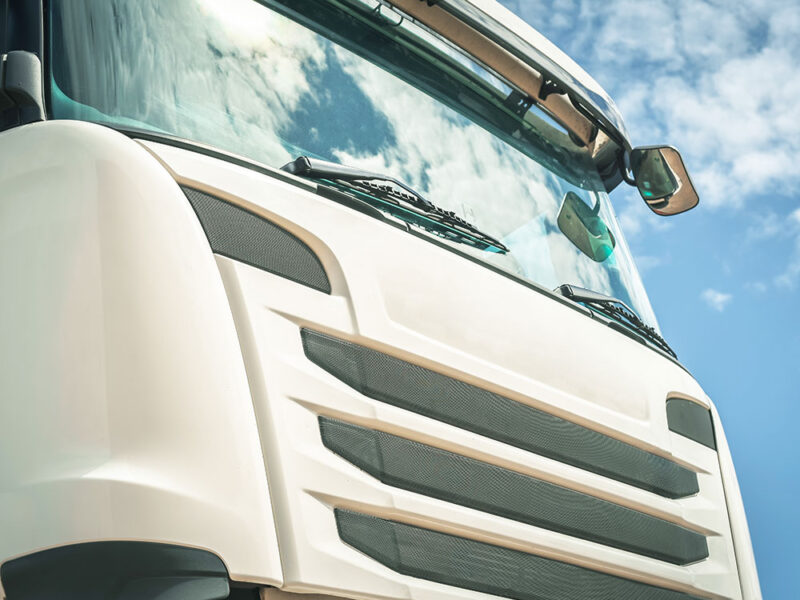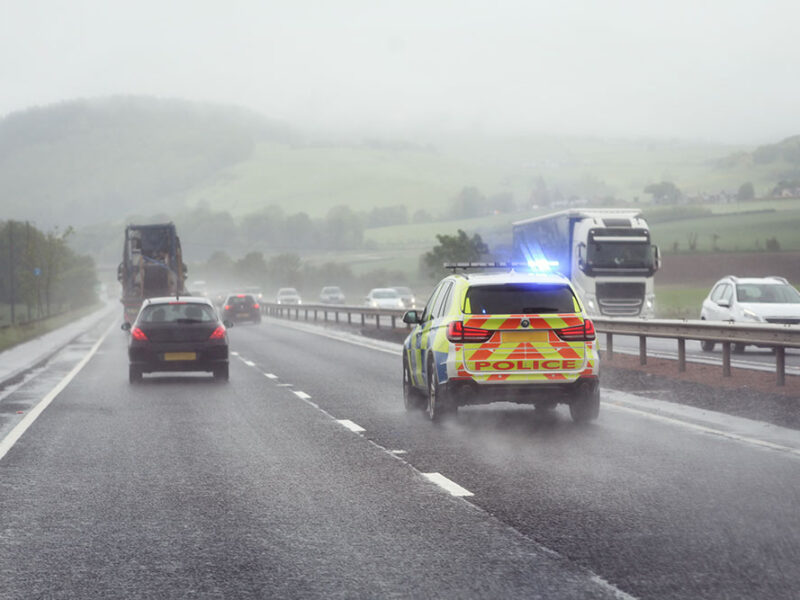The Government has recently issued guidance to the freight transport industry on what steps may need to be taken by UK based goods vehicle operators in what they describe as "the unlikely event" that the UK leaves the European Union without a deal on "Brexit day" (29th March 2019).
ECMT Permits
Currently, UK goods vehicle operators undertaking international journeys must have a standard international operator's licence along with a community licence for journeys to, from or through the EU and EEA. The Government recognises that from 29th March 2019, if there is "no deal" between the UK and the EU, it is possible that EU and EEA countries may decide not to recognise UK issued community licences. Whilst the Government states it is confident that they would be able to negotiate new (or reinstate old) bilateral agreements with such countries to provide haulage access, it goes on to recommend that operators or their transport managers may wish to apply for "ECMT International Haulage Permits" for 2019. ECMT permits will enable UK operators to drive in the EU and EEA (except for Cyprus) in the event that UK community licences are not recognised.
Operators wishing to ensure that they obtain an ECMT permit so that they are covered should no Brexit deal be done, must act quickly: numbers of the permits are limited, and it is likely that they will be issued on a first come first served basis. Additionally, applications for permits will open on 26th November and finish on 21st December 2018, so the window within which operators can apply is also limited.
Operators can apply online but to do so must have a Vehicle Operator Licence (VOL) Online Account - it is still possible for those operators that do not yet have an account to create one, but they need to do so by 12th November 2018. Click here to go through to the Government application page.
Before applying for a VOL account, operators will need to collate historical data on their international journeys in order to complete the registration. More details on this can be found here.
Trailers
The Government has also advised that from 28th March 2019, all commercial trailers over 750kg and all trailers over 3,500kg must be registered before they can travel through countries that have ratified the 1968 Vienna Convention on Road Traffic. This includes countries in the EU, EEA and Europe, but not Spain, Cyprus and Malta. A full list of these countries is given below:
| Albania | Andorra | Armenia | Austria | Azerbaijan |
| Belarus | Belgium | Bosnia and Herzegovina | Bulgaria | Croatia |
| Czech Republic | Denmark | Estonia | Finland | France |
| Georgia | Germany | Greece | Hungary | Italy |
| Kazakhstan | Latvia | Liechtenstein | Lithuania | Luxembourg |
| Macedonia | Moldova | Monaco | Montenegro | Netherlands |
| Norway | Poland | Portugal | Romania | Russia |
| San Marino | Serbia | Slovakia | Slovenia | Sweden |
| Switzerland | Ukraine |
In order to use trailers on international journeys in these countries the following steps will need to be taken;
- Trailers will need to be registered with the DVLA
- Trailers will need to display their own registration plate (separate from the vehicle that is towing them)
- The driver of the towing vehicle will need to carry a valid Trailer Registration Certificate in order to present it to any foreign authority upon request.
Driver's Licensing
Finally, the Government has issued guidance on drivers licences post a no-deal Brexit. It is advised that drivers will need one or possibly several International Driving Permits (depending upon which countries are to be travelled through) to drive in the EU. More information on this aspect can be found here.
Of course, nothing is certain at this stage in the negotiations, and come what may there will inevitably be much uncertainty:- so it is wise to hope for the best, but plan for the worst!
If you would like help or assistance on this issue, then please call us on 01279 818280.

More News and Insight

Abnormal Loads – Calls for Changes to Law for Abnormal Loads Needing Police Escorts
Recently in the trade press there have been articles reporting calls from the UK’s Heavy Transport Association (HTA) for the law to be changed regarding police escorting of abnormal loads….

DVLA Confirms New Rules for Professional Drivers Living with Diabetes
From Friday 7th November 2025 the rules were changed to allow diabetic drivers of PSV’s and HGV’s to monitor their glucose levels using Continuous Glucose Monitoring Systems….

Carrying Your Own: Horses to Widgets? Do you Need an O Licence?
The DVSA recently released a press release about the rules for transporting horses in horse boxes and trailers following an update on the guidance about using a tachograph in the vehicle being used to transport the animals…

The Senior Traffic Commissioner’s Statutory Guidance
The value of The Statutory Guidance Documents and the importance to operators, nominated transport managers and other professionals involved in the operation and driving of large commercial vehicles cannot be overstated…

Walkaround Checks – Where Road Safety Starts
Every day, often before the sun is above the horizon, hundreds of thousands of commercial vehicles are started up by their drivers and then they head out on to the UK’s road network to transport goods or passengers from one point to another, often with demanding time constraints thrown into the mix…

Traffic Commissioner’s Annual Report 2024/25: “Don’t Look Back in Anger”
Time has flown by and once again we find that the schools are back after the long summer break and the Office of the Traffic Commissioner has issued its annual report to the Secretary of State, providing a review of the year…

An Apple a Day to Keep the DVLA Away – A review of the DVLA’s Rules on Health Checks for Professional Drivers
There has been some discussion in the industry trade press recently that has highlighted proposed changes to how the disease of diabetes is monitored in professional drivers by the DVLA. One article in RouteOne Magazine stated that…

Light Goods – Heavyweight Industry: The DVSA’s New LGV Strategy
While relatively small in overall physical size light goods vehicles (LGVs) are now a large part of the UK road transport industry. There are currently estimated to be over 5.1 million light goods vehicles on UK roads today…

Employment Law Update – A tale like Scylla & Charybdis
Operators currently face their own real time nightmare in the form of a modern day version of the Greek mythological tale of Scylla and Charybdis (where sailors faced a narrow strait through which they had to pass which had a monster on one side and a whirlpool on the other!)…

Labour Government – Employment Rights Bill – What Will It Mean for Transport Businesses?
In October 2024 the Deputy Prime Minister, Angela Rayner set out her intention to reform the employment rights held by employees in the UK. In a press release issued at the time she is quoted a saying…

Revisiting the DVSA’s Guide to Maintaining Roadworthiness
In April 2025 the Driver & Vehicle Standards Agency (DVSA) issued the latest edition of its Guide to Maintaining Roadworthiness.

The Wheels on the Bus go Round & Round….but how do they Stop?
At the tail end of 2024 a Public Inquiry was held in front of Traffic Commissioner Kevin Rooney where the subject of brake maintenance practices was called into question…
